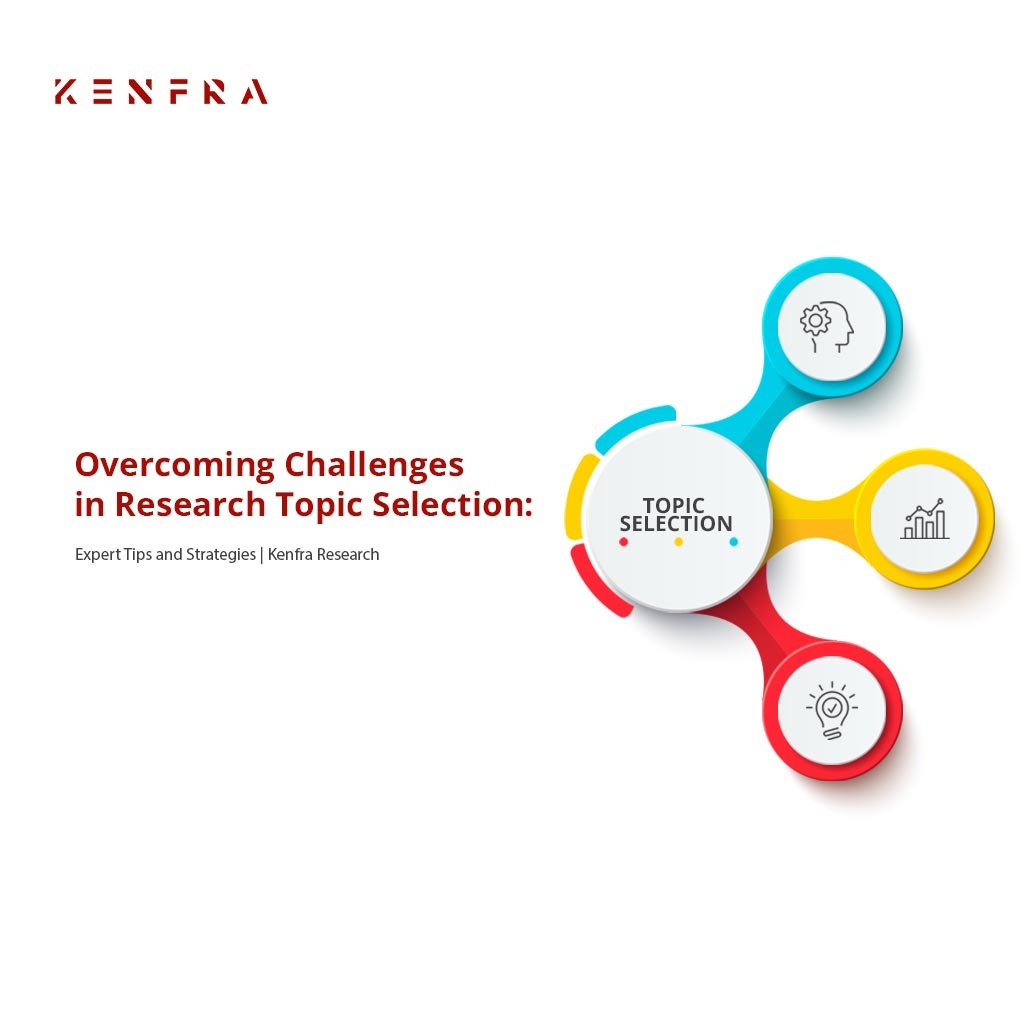Overcoming Challenges in Topic Selection for Research Papers
Kenfra2025-09-22T15:22:02+05:30Overcoming Challenges in Topic Selection for Research Papers
Choosing a research topic can be one of the most challenging steps in the research process. The influence of disciplinary backgrounds, the abundance of literature, and the criteria for formulating research questions all contribute to the difficulty in selecting a suitable topic. In this blog, we will address these challenges and provide insights to help you navigate through them.
How Does a Disciplinary Background Influence the Selection of a Research Topic?
Your disciplinary background plays a crucial role in shaping your research interests and perspectives. It determines the theoretical frameworks, methodologies, and types of questions you are familiar with, which can both guide and limit your topic choices. Understanding this influence can help you leverage your strengths and identify unique angles within your discipline.
What Are the Challenges of Choosing a Research Topic with an Abundance of Literature?
An abundance of literature can be overwhelming, making it difficult to pinpoint a unique and unexplored research area. To manage this, it’s essential to narrow down your focus, look for gaps or controversies in the literature, and consider emerging trends. Developing a clear research question can help you stay focused amidst the plethora of information.
How Do You Formulate Research Questions Effectively for a Research Paper?
Formulating effective research questions requires clarity, specificity, and relevance. Start by identifying a broad area of interest, then narrow it down to specific issues or problems. Ensure your questions are researchable and significant to your field. A well-formulated question guides your research and provides a clear direction.
What Criteria Should Be Considered When Selecting a Research Topic?
When selecting a research topic, consider the following criteria:
- Relevance: Ensure the topic is significant and contributes to your field.
- Interest: Choose a topic you are passionate about to maintain motivation.
- Feasibility: Assess the availability of resources, data, and time required.
- Originality: Aim for a unique angle or approach to stand out.
Why Is It Difficult to Choose a Research Topic in Certain Disciplines?
Some disciplines have more established bodies of literature, making it harder to find unexplored areas. In contrast, emerging fields might lack sufficient background research, posing a different set of challenges. Balancing these extremes requires careful consideration and strategic planning.
How Can One Manage the Overwhelming Amount of Literature When Selecting a Research Topic?
To manage the overwhelming amount of literature, use systematic approaches such as:
- Literature Reviews: Conduct comprehensive reviews to understand the current state of research.
- Bibliographic Tools: Utilize tools like citation managers to organize references.
- Critical Reading: Focus on key studies and seminal works to gain deep insights.
What Strategies Can Help in Narrowing Down a Research Topic?
Narrowing down a research topic can be achieved through various strategies:
- Brainstorming: Generate a list of potential topics and refine them.
- Consultation: Seek advice from mentors, peers, and experts in your field.
- Focused Reading: Dive deep into specific areas of interest to identify gaps and questions.
How Important Is a Disciplinary Background in Shaping Research Questions?
A disciplinary background provides the foundation for your research questions by offering established theories and methodologies. However, interdisciplinary approaches can also enrich your research by incorporating diverse perspectives and techniques.
What Are Some Common Mistakes Made When Choosing a Research Topic?
Common mistakes in choosing a research topic include:
- Being Too Broad: A broad topic can be unmanageable and lack focus.
- Being Too Narrow: A narrow topic may lack sufficient literature or significance.
- Lack of Interest: Choosing a topic you’re not passionate about can lead to burnout.
How Can One Ensure That Their Research Topic Is Original and Not Over-Explored?
To ensure originality, conduct a thorough literature review to identify gaps, debates, and unexplored areas. Consider innovative methodologies or theoretical frameworks to bring a fresh perspective to existing topics.
How Does One Balance Between a Broad and a Narrow Research Topic?
Balancing a broad and narrow topic involves finding a middle ground where the scope is manageable yet significant. Start with a broad area and progressively narrow it down by focusing on specific aspects, populations, or contexts.
What Role Does Previous Research Play in Selecting a New Research Topic?
Previous research provides the foundation for identifying gaps and building upon existing knowledge. It helps to understand what has been done and what remains unexplored, guiding you towards relevant and impactful research questions.
How Can Interdisciplinary Approaches Impact the Selection of a Research Topic?
Interdisciplinary approaches can open up new research possibilities by integrating concepts, theories, and methods from multiple fields. This can lead to innovative and comprehensive research topics that address complex problems.
What Tools and Resources Are Available to Help in Choosing a Research Topic?
Various tools and resources can aid in choosing a research topic, including:
- Academic Databases: Access to journals, articles, and papers.
- Citation Managers: Tools like EndNote or Zotero for organizing references.
- Research Networks: Platforms like ResearchGate for collaboration and insights.
How Can Mentorship or Guidance from Advisors Assist in Topic Selection for Research?
Mentorship and guidance provide valuable insights, feedback, and support. Advisors can help you refine your ideas, identify potential challenges, and ensure your topic is feasible and significant.
What Are the Key Elements of a Well-Formulated Research Question?
A well-formulated research question should be clear, concise, and researchable. It should address a specific problem, be grounded in existing literature, and have practical or theoretical significance.
How Can One Stay Focused on a Chosen Topic Amidst Abundant Literature?
Staying focused involves setting clear objectives, organizing your research process, and regularly revisiting your research question. Prioritize key studies and avoid getting sidetracked by peripheral information.
What Impact Does the Availability of Resources Have on Topic Selection?
The availability of resources, such as data, funding, and research tools, significantly impacts topic selection. Ensure that you have access to the necessary resources before committing to a topic.
How Can One Effectively Review Existing Literature to Find a Research Gap?
To effectively review literature and find a research gap:
- Conduct Systematic Reviews: Methodically search and evaluate relevant studies.
- Identify Patterns: Look for trends, contradictions, and underexplored areas.
- Focus on Recent Publications: Stay updated with the latest research to spot emerging gaps.
What Are the Best Practices for Documenting and Organizing Literature During Topic Selection?
Best practices for documenting and organizing literature include:
- Use Citation Management Tools: Organize references and notes systematically.
- Create Summaries and Syntheses: Summarize key findings and synthesize information.
- Develop a Research Log: Maintain a log of your search process, decisions, and reflections.
Choosing a research topic is a crucial step that requires careful consideration and strategic planning. By understanding the challenges and employing effective strategies, you can select a topic that is both manageable and impactful. Kenfra Research, we provide the guidance and support you need to navigate this process and succeed in your academic endeavors.









Leave a Reply